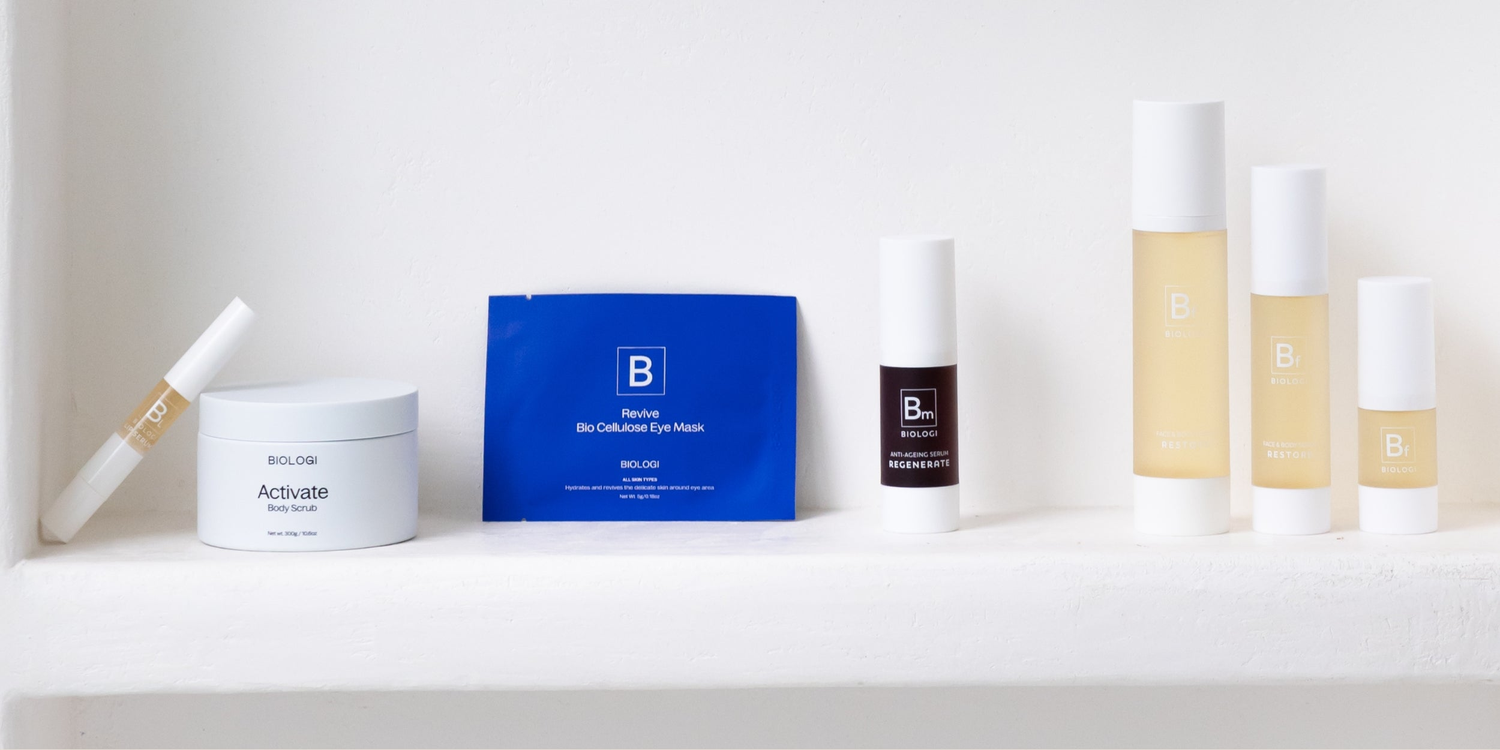It's no secret that the topical products you choose are only one element of an effective skincare routine.
Armed with detailed knowledge of cellular function, at Biologi, we recommend a holistic approach to glowing skin. Not only must you carefully choose water-soluble serums packed with active ingredients to specifically target individual skin concerns, but just as important is nourishing the body from the inside out.
If you only have one piece of the puzzle and you're wondering what the body needs from within, read on as we share our internal tips for glowing skin.
1. Eat a diet rich in omega three fatty acids
Consuming omega threes can help increase protection from the sun and reduce sun-caused concerns such as pigmentation. While this is never a substitute for sunscreen, omega threes can lock in the skin's natural moisture to hydrate the complexion, reduce sensitised skin and calm redness and irritation.
Proven to reduce inflammation throughout the body, a diet rich in omega threes may also reduce inflammatory conditions such as rosacea and acne.
As the body doesn't produce omega threes by itself, you must consume them to boost results. Sources of omega three fatty acids include:
- Walnuts
- Oysters
- Fish (especially salmon)
- Chia seeds
- Sardines
- Flaxseed oil
2. Hydrate from the inside out
While water-based serums can provide an excellent level of cellular hydration, consuming liquids is essential to fully hydrate the skin.
A minimum of two litres of H2O a day is the easiest and most effective way to support the skin's natural hydrating processes, but you can also consume water through green teas, smoothies and water-dense foods such as salad.
Increase water intake to reduce flaky, dry skin that can cause sensitivity and irritation.
3. Reduce sugar intake
While we all know consuming too much sugar can lead to weight gain, it can also have a detrimental effect on the skin.
Sugar turns into glucose which can elevate insulin levels known to increase inflammation throughout the body leading to acne and other inflammatory skin conditions.
While sugars found in fruit and vegetables are loaded with health benefits, avoid refined sugars contained in chocolate, lollies and cake to achieve glowing skin.
4. Introduce smoothies
Smoothies are an excellent way to boost nutrients without piling on calories.
Green smoothies made with kale or spinach are packed with collagen-boosting vitamins such as vitamins A and C. Not only do these essential nutrients hydrate the skin, but they can reduce the tell-tale signs of ageing for a glowing complexion.
The body is more effective at absorbing the nutrients found in smoothies because they aren't lost or compromised during the digestion process.
Add a range of fruit to build collagen and enhance skin tone while giving yourself a delicious treat too!
5. Avoid caffeine
Caffeine is a diuretic that increases urination and can lead to dehydrated skin. Also, too much caffeine can cause blood vessels to constrict which restricts the flow of nutrients to the skin leading to premature ageing and dehydration.
Swap green tea for coffee for an antioxidant boost that fights inflammation, hydrates dry skin and regulates oil flow.
6. Restrict dairy
While dairy is a good source of calcium, it is also highly inflammatory. Not only can it trigger existing skin conditions such as acne and eczema, but non-organic dairy hormone alternatives may also upset natural hormonal balance.
While some dairy may be essential for a balanced diet, consume it in moderation to reduce the impact on the skin.
7. Get enough zinc
Zinc is a trace mineral that may reduce the free radical damage that can lead to premature ageing and dehydrated skin.
As an anti-inflammatory, zinc can reduce blemishes and redness and promote immune function for healthier skin.
As an essential mineral, consume zinc in moderation! You only need approximately 20mg a day to notice the effects.
Sources of zinc:
- Oysters
- Meat
- Seeds
- Nuts
- Eggs
While multi-use water-soluble active serums are essential to achieve glowing skin, boost results by paying attention to internal health to nourish the skin from the inside out.
This is meant as general advice and we recommend seeking the advice from a naturopath or dietary specialist who can provide the correct internal help and guidance.


